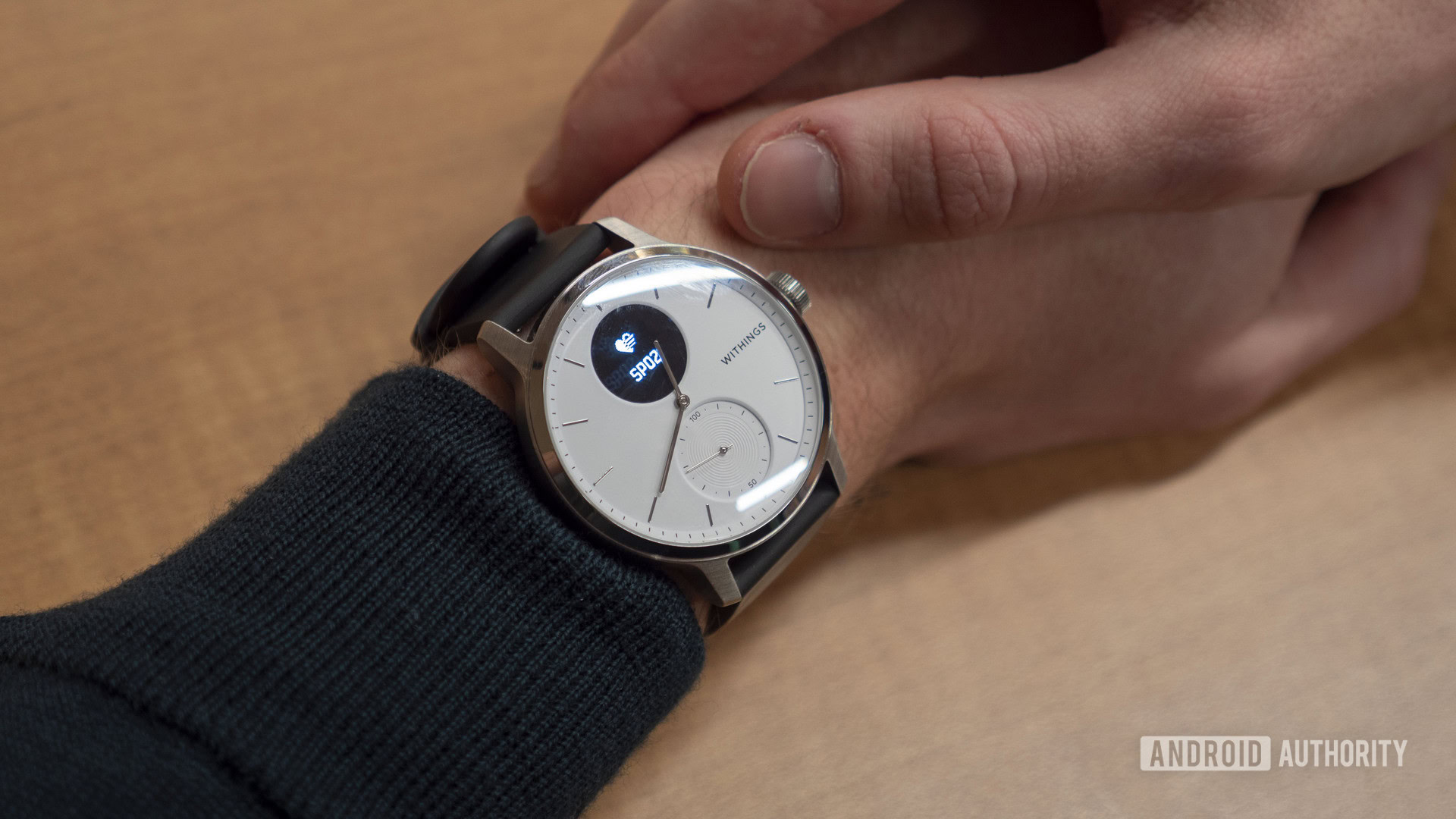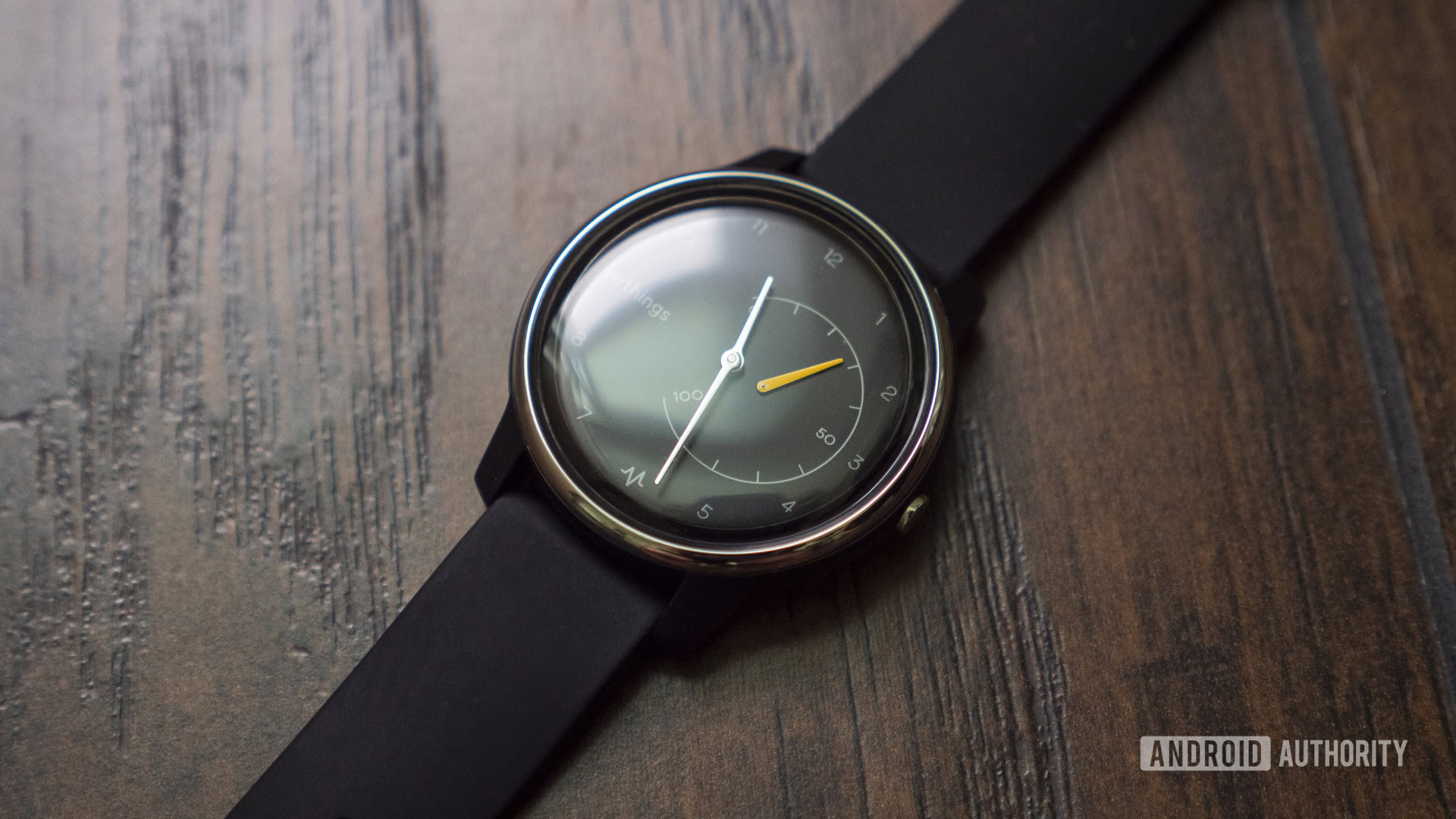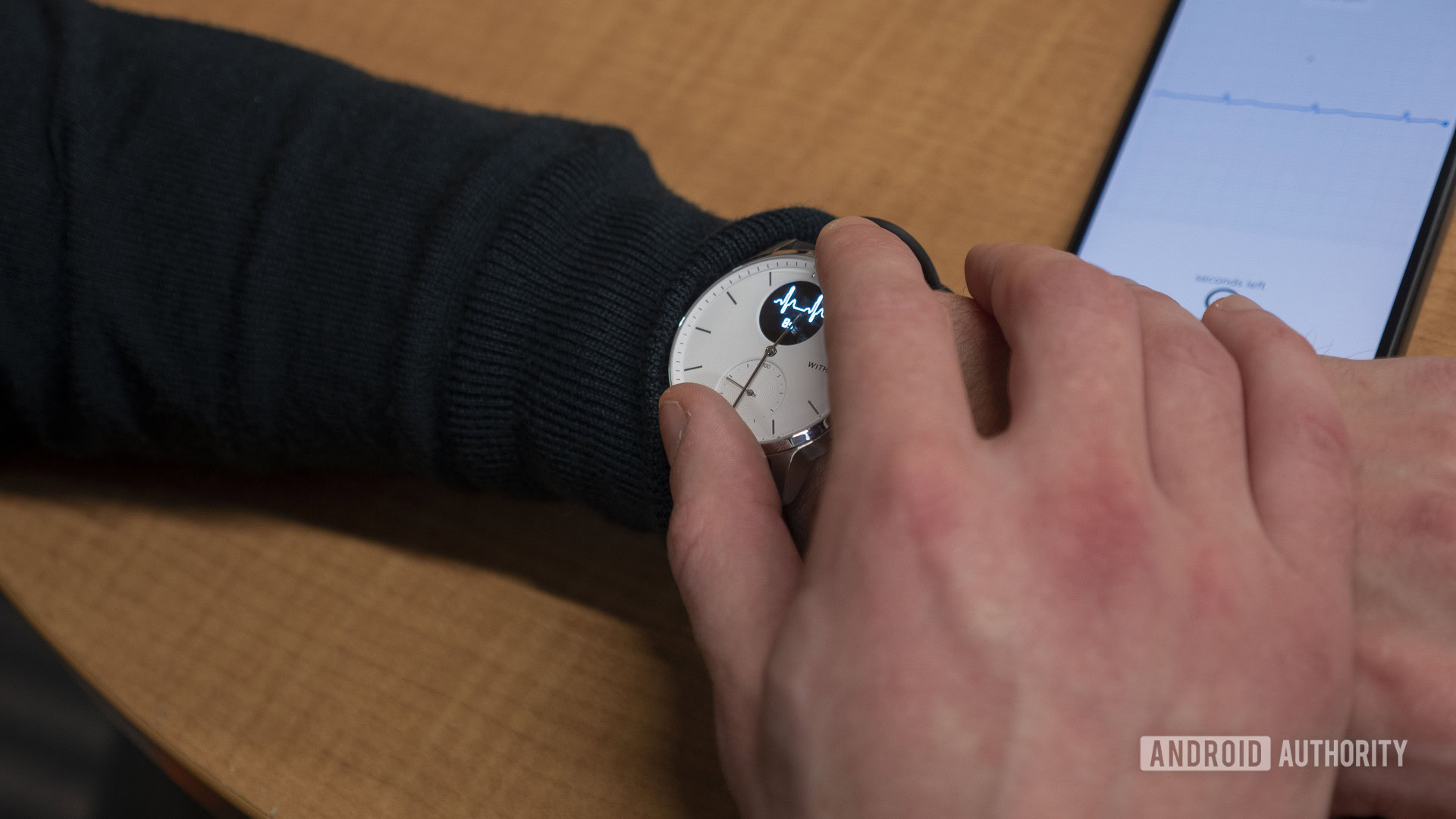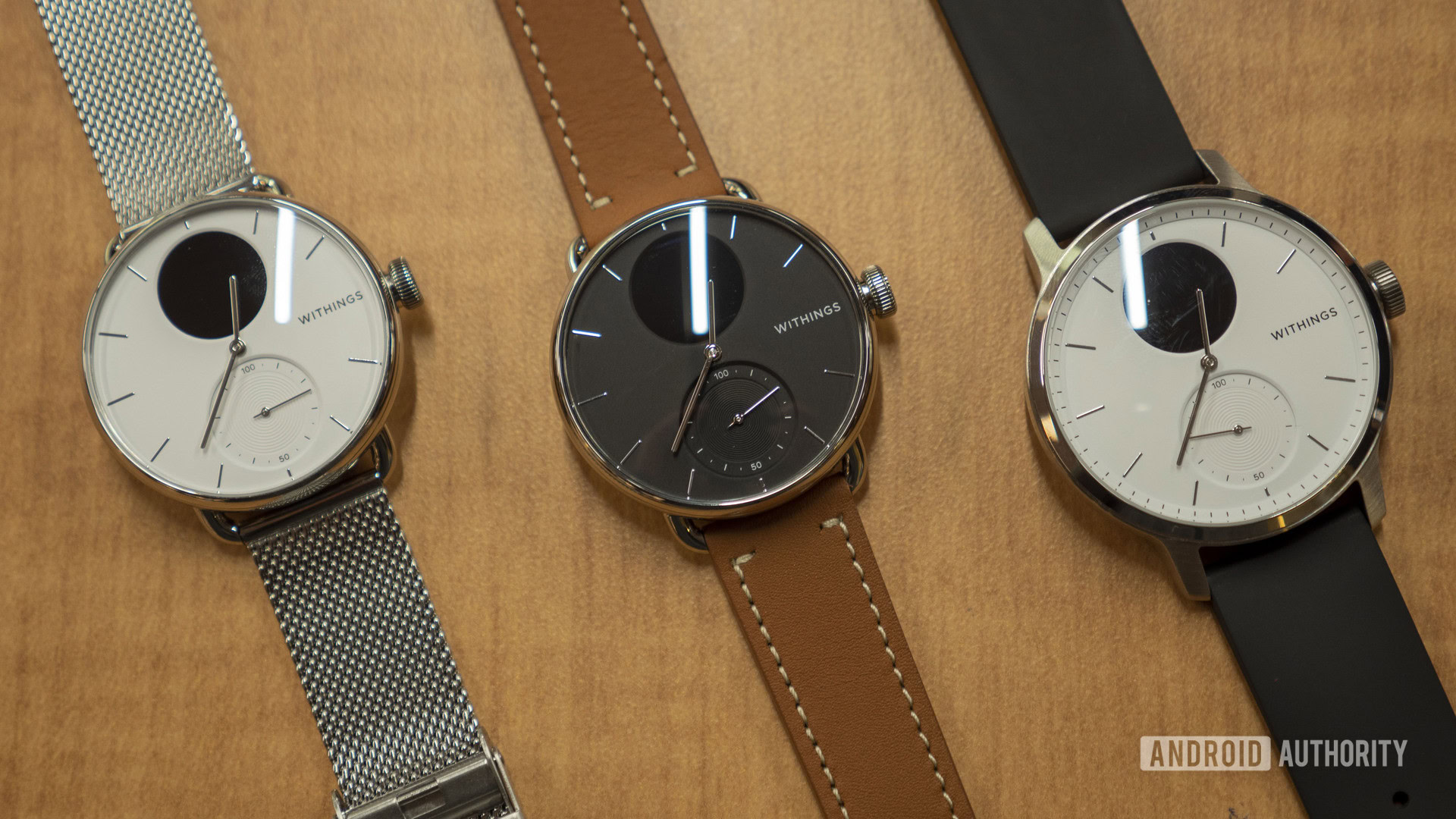Affiliate links on Android Authority may earn us a commission. Learn more.
Withings ScanWatch launches with real, honest-to-goodness sleep apnea detection
Published onJanuary 5, 2020

Withings, the ex-Nokia health and fitness company, has been making some of our favorite hybrid smartwatches as of late. The Withings Move and Move ECG both won awards from Android Authority for their understated design and powerful health features. We had two main gripes with both watches: They were both prone to scratching due to their plastic builds, and they didn’t provide really any smartwatch features. Luckily, the new Withings ScanWatch fixes those complaints and adds some useful new health and fitness features in the process.
The Withings ScanWatch is the very first clinically validated hybrid smartwatch that can assist in detecting arrhythmia (AFib) and sleep apnea. AFib — the irregular beating of one’s heart that can lead to blood clotting and stroke — and sleep apnea — a sleep disorder where breathing rapidly starts and stops — are common disorders that often go unnoticed by patients and doctors. The Withings ScanWatch will attempt to monitor for both of these conditions and notify you if it senses anything out of the ordinary.


It does so with its built-in electrocardiogram (ECG), just like the one found in the Withings Move ECG. Just place two fingers on the sides of the watch bezel, hold still for a few seconds, and the watch will take an ECG reading which you can see in the Health Mate app or on the small watch display.
Afterwards, you can print out a graph of your ECG to send to your doctor, or send it to them in PDF form. I tested this in my Move ECG review, and the process really couldn’t be any simpler.
The ScanWatch also has a new early warning detection feature, which will allow it to continually monitor your heart rate through the built-in PPG sensor. If the watch notices anything abnormal throughout the day, it’ll let you know.
Withings included an SpO2 sensor in the ScanWatch too. This sensor measures your oxygen saturation levels throughout the night and will let you know if you’re experiencing any sleep apnea episodes. And like other sleep trackers, the Withings ScanWatch will provide detailed sleep analysis like duration, depth regularity, and interruptions.

The ScanWatch looks like the older Withings Steel HR hybrid watches, only the ScanWatch has a more refined design. It has a larger PMOLED display for showing notifications, heart rate, and more. Navigating around the device should be easier thanks to the new rotatable crown on the right side of the case. You’ll get smartphone notifications on your wrist, as well as vibration alarms.
$250 isn't a bad price to pay for a watch with this many features.
This seems to be a much higher quality hybrid watch than others we’ve seen recently — the case is made of 316L stainless steel, and the front watch glass is made of sapphire glass. Withings also threw in connected GPS functionality as well as a 5ATM water resistance rating.
And, due to that low-power display, the battery is rated to last roughly 30 days on a single charge. Even with the SpO2 sensor recording your blood oxygen levels overnight, the watch will still last over two weeks.
The Withings ScanWatch will be available in the US and Europe (pending FDA and CE clearance) in Q2 2020 for €249/£229/$249 for the 38mm model and €299/£279/$299 for the 42mm model. You’ll be able to find them on Withings.com and Amazon in multiple color options.
Personally, I think $249 is a fine price to pay for the ScanWatch. I didn’t like how the Move ECG was easily scratched and made of plastic, so I’m happy to pay more for a device that’s made of sapphire and stainless steel.
The big question, though, is how quickly Withings will be able to get the ScanWatch FDA and CE certified. The Move ECG took eight months to clear CE certification, and it’s still not officially released in the US. Withings’ CEO, Mathieu Letombe, hopes the company will be able to clear certification quicker than that. “We believe that it will go smoother with the FDA because we learned a lot last year. At no point were there any issues with the performance of the Move ECG — it was really about the process itself and how you have to adapt the documentation for the FDA,” said Mathieu Letombe in an interview with Android Authority at CES. “There are many little details that take a lot of time to get together to come up with the right documentation required by the FDA.”
We’ll have a review unit soon enough, so stay tuned for more coverage! In the meantime, check out all the other CES 2020 announcements below.